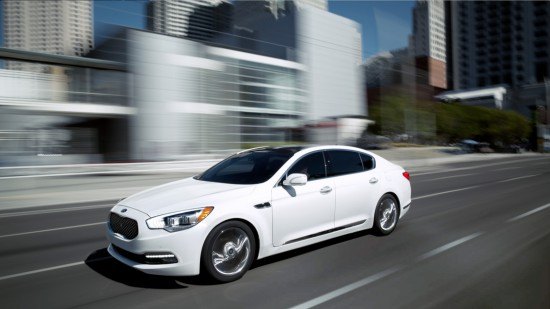Hyundai, Kia Fined $300M By State, Federal Agencies Over Erroneous Fuel Economy Numbers
Being an asterisk regarding fuel economy numbers isn’t the only penance Hyundai and Kia must pay: The U.S. Department of Justice, the Environmental Protection Agency and the California Air Resources Board dropped a collective $300 million penalty on the South Korean brands for mistating fuel economy numbers on their respective 2011-2013 lineups.
Autoblog reports the two alone will pay a total of $100 million to the EPA, the highest such fine in the agency’s history. Hyundai’s part of the bill comes to $56.8 million, while Kia will foot the remaining $43.2 million. The brands will also forfeit 4.75 million greenhouse emissions credits, worth approximately $200 million, and contribute a requested $50 million in investments “to prevent future violations of the Clean Air Act” by automakers.
In-house, parent company Hyundai is establishing “an independent certification test group” to handle future fuel economy testing and reporting, along with training proctors on the proper methods. The company maintains the erroneous reporting was due to the methodology used in the EPA’s test schedule, as well as errors from the coastdown portion of the test.
Hyundai and Kia are also auditing 2015 and 2016 models for accurate fuel economy numbers in light of the previous errors.
Seattle-based writer, blogger, and photographer for many a publication. Born in Louisville. Raised in Kansas. Where I lay my head is home.
More by Cameron Aubernon


































Comments
Join the conversation
You've not seen overstated claims untill you've seen the comsumption numbers that the Government of Canada publishes: http://www.nrcan.gc.ca/energy/efficiency/transportation/cars-light-trucks/buying/7487
I guess I don't understand the process. It sounds as if the manufacturers have to follow the parameters of the testing, and then give the results to the government. Do consumers really take the EPA ratings seriously? I thought we all pretty much figured out the EPA ratings are relative to other vehicles. Heck, where did the "Your mileage may vary" statement come from? So just how far off are they? How much different is that from other manufacturers?
I wonder what the shame and subsequent spin in South Korea on this will be. It will likely be that the Company made a slight and accidental mistake, and the US government came down hard on Korea's favorite chaebol.
How much is Ford being fined considering it's admitted to lying about the EPA numbers by up to 7 mpg, more than Hyundai/Kia were? Oh, wait, that's right, they weren't.